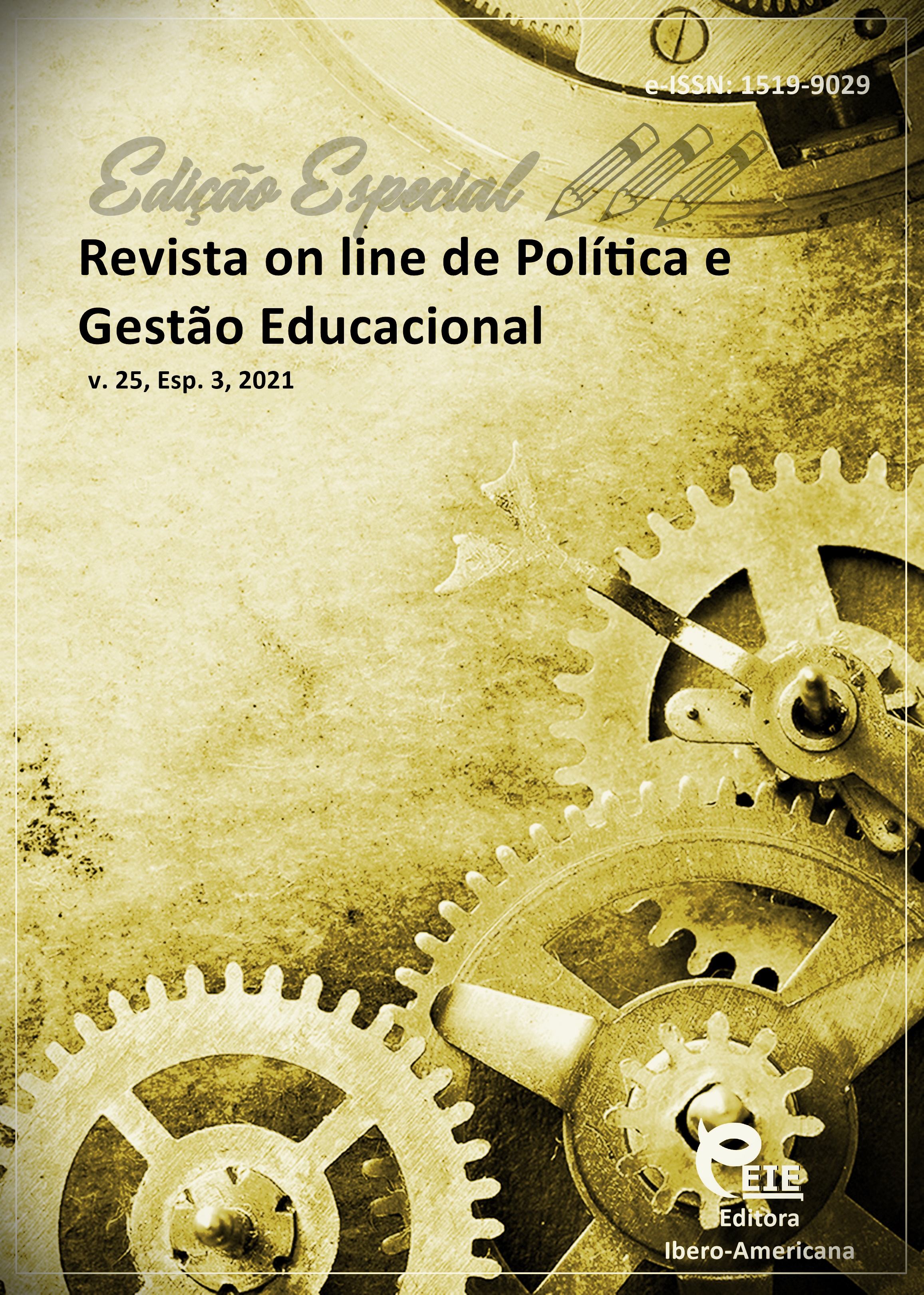Directions of formation of humanistic values in higher education institutions: problems and perspectives
DOI:
https://doi.org/10.22633/rpge.v25iesp.3.15581Keywords:
Higher education institutions, Humanistic values, Students, Main directions, Perspectives in educationAbstract
The article analyzes the directions of the formation of humanistic values in higher education institutions. The results of the study showed that students have a high attitude to humanistic values, regardless of the level of self-affirmation and self-esteem. The main mechanisms of formation of humanistic values in students depend on the provocative features of social values, which occupy a dominant place in the hierarchy of values and professional self-confidence, which reflects the integrated qualities of the individual. It was found that there is a positive correlation between humanistic qualities and personal qualities and academic achievements. There is an important connection between self-awareness, self-esteem, self-assertion, and a social ideal that reflects humanistic qualities in students. It can be concluded that in order to develop humanistic values, it is necessary to develop socially important values and personality traits. Here it is necessary to consider the cognitive needs, opportunities for self-affirmation, as well as learning achievements.
Downloads
References
AZERBAIJCA FOLKLORE, (2005). Baku, Qanun.
ALONI, N. Humanistic education: From theory to practice. In: W. Veugelers (Ed.), Education and humanism: Linking autonomy and humanity Rotterdam, Netherlands: Sense Publishers. 2011.
BROCETT, R.G. Humanism as an instructional paradigm. 1998. Available: http://roghie mstr a.¬com/romira1.html
DIERKSMEIER, C. What is ‘Humanistic’ About Humanistic Management?. Humanist Management Journal, 1, 9–32 2016; Available: https://¬link.spri¬nger.c¬om/art¬ic¬le/10-.1007/s41463-016-0002-6
DE GROOT, I. Why we are not democratic yet: The complexity of developing a democratic attitude. Rotterdam, Netherlands: Sense Publishers. 2011.
EFFENDI, R.; BAFADAL, I.; NYOMAN, D.; ARIFIN, I. The Construction Model of Inculcating Principal Humanistic Values in Forming a Characteristic School Environ-ment. Preprints Posted: 2, 19, 21-43, 2020. DOI: 10.20944/p¬reprints20¬2011¬.0068.v1).
JABBAROV, R. Factors affecting the development of self-realization among students of different professions. Science and Education, 9, 75-87. 10.24195/2414-4665, 2018. Available: https://s¬cience¬andeduc¬ation¬.pdpu.¬edu.ua/en¬/article¬s/2017¬-¬9-doc¬/¬20¬17¬-¬9-st12-en
MASLOW, A. Motivation and personality. Moscow, Peter. 2018.
MELE, D. Understanding Humanistic Management. Humanistic Management Journal, 1(1), 33-55. 2016. DOI: 10.1007/s41463-016-0011-5
MILLER, M. D.; GREKSON, J. A. A philosophic view for seeing the past of vocational education and envisioning the future of workforce education: Ann Arbor, MI: Prakken. 1999.
NEMIROFF, G. H. Reconstructing education: Toward a pedagogy of critical humanism. New York, NY: Bergin & Garvey. 1992.
ROKEACH, M. Beliefs, attitudes and values: a theory of organization and change. Jossey-Bass, San Francisco, California, USA. 1968.
PARI NAZ P.; MARYAM N.; EZATOLLAH N. Humanistic Education and students’ Educational Motivation in Tehran Primary Schools. International Journal of Mental Health and Addiction, 15, 312–322. 2017. Available: https://link.¬sprin¬ger.c¬om/¬art¬icle/10.1¬007/s11-469-016-9703-1
PENG C.; CARSTEN. S. Humanistic Elements in the Educational Practice at a United States Sub-Baccalaureate Technical College // International Journal for Research in Vocatio¬nal Education and Training (IJRVET), Vol. 4, Issue 2, August 2017, 117-145. DOI: 10.13152/IJRVET.4.2.2
SCHWARTZ, S. Values: individual and cultural. Pages 463-493. In: F. J. R. van de Vijver, A. Chasiotis, and S. M. Breugelmans, edit¬ors. Fund¬amental questions in cross-cultural psychology. Cambridge University Press, Cambridge, UK. 2010. Available: http://dx.doi-.org/10¬.¬1017¬/c¬bo978051¬19740¬90.019
SCOTT, P. Individualizing vocational education. VA: American Vocational Association. 1980.
SEYIDOV, S. I. Phenomenology of Creativity. Baku: Chashigoglu. 2009.
SHOSTROM, E. Man-manipulator. The inner journey from manipulation to actualization. Kiev; PSYLİB. 2003.
VEUGELERS, W. A humanist perspective on moral development and citizenship education. Rotterdam, Netherlands: Sense Publishers. 2011.
WILLIIAM T. Teaching professional and humanistic values: Suggestion for a practical and theoretical model, Patient Education and Counseling, 98, 2.162-167. 2015. DOI: //doi. org/10.1 016/j.pec 2014.10.022
WADDOCK, S. Developing Humanistic Leadership Education. Humanist Man¬age¬ment Journal, 1, 57–73, 2016. 10.1007/S41463-016-0003-5
Published
How to Cite
Issue
Section
License
Copyright (c) 2021 Revista on line de Política e Gestão Educacional

This work is licensed under a Creative Commons Attribution-NonCommercial-ShareAlike 4.0 International License.
Manuscritos aceitos e publicados são de propriedade da Revista on line de Política e Gestão Educacional. É vedada a submissão integral ou parcial do manuscrito a qualquer outro periódico. A responsabilidade do conteúdo dos artigos é exclusiva dos autores. É vedada a tradução para outro idioma sem a autorização escrita do Editor ouvida a Comissão Editorial Científica.











